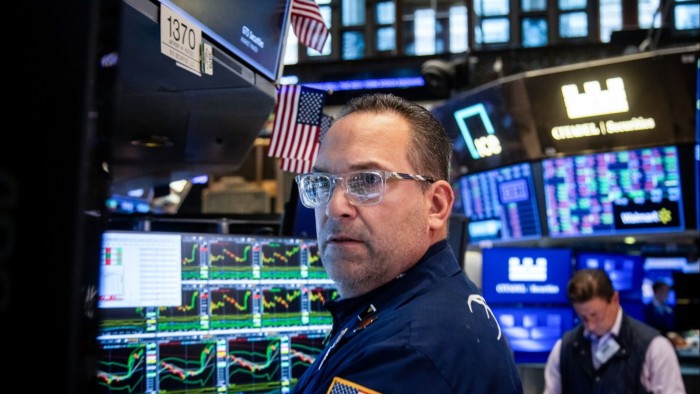Unlock the White House Watch newsletter for free
Your guide to what the 2024 US election means for Washington and the world
Donald Trump dislikes trade deficits. His attempts to remedy them with tariffs caused stocks and bonds to plunge. On Wednesday, after he rowed back, markets soared again. This mayhem threatens to erode the appeal of US investments. Which could, perversely, help Trump get what he wants.
To a president wary of depending on other countries, last year’s $918bn US trade deficit is a menace. To economists, though, it’s also an artefact of maths. Money that flows out to buy imports is the inverse, on a net basis, of money coming in to acquire financial assets. In econo-speak, the current account and the capital account must balance.
When one moves, therefore, so does the other. If America buys more exports, foreigners have more dollars to deploy in US assets. Treasuries are a safe bet. Shares in companies such as Nvidia, Apple and Berkshire Hathaway have been a profitable one. Foreigners own $19tn of US stocks, according to Treasury data, twice the level of five years ago.

Whacking tariffs on goods targets trade directly. But anything that curbs the capital account surplus should also reduce the current account deficit. For example, less investment coming in can weaken the dollar, which makes imports more expensive.
Think of the years following the financial crisis. In 2008 and 2009, inbound investment flows fell by about three-quarters, as investors bought up Treasuries but dumped stocks and corporate bonds. The trade balance also fell, from 5 per cent of GDP to 2 per cent. By the end of 2024, it had risen to 3 per cent.
Narrowing the trade gap doesn’t justify the misery and anxiety of that era. Burning down a house is a bad way to get at the mice in the attic. But the relationship that then held true still does. Before Wednesday, the S&P 500 had lost roughly $6tn of value in a week. Treasury bonds, too have fallen in price. It’s hard to argue these asset classes haven’t lost lustre. Investors don’t deal well with what strategists at asset manager Carlyle have delicately called “extreme non-linearities”.

One of the phrases often used in relation to US markets is the “exorbitant privilege” — a fancy way of describing America’s financial exceptionalism. As the world’s biggest economy, furnished with deep capital markets, stable inflation and relatively predictable politics, its dollars are always in demand, and capital for US residents comes cheap.
Killing that privilege wouldn’t be easy. Trump, for all the havoc, has not done so, though he has probably bruised it. But if he is really serious about wiping out US trade imbalances, then trashing the country’s investment appeal, and indirectly squishing the current account deficit, would be an effective — if very costly — way to do it.
john.foley@ft.com



